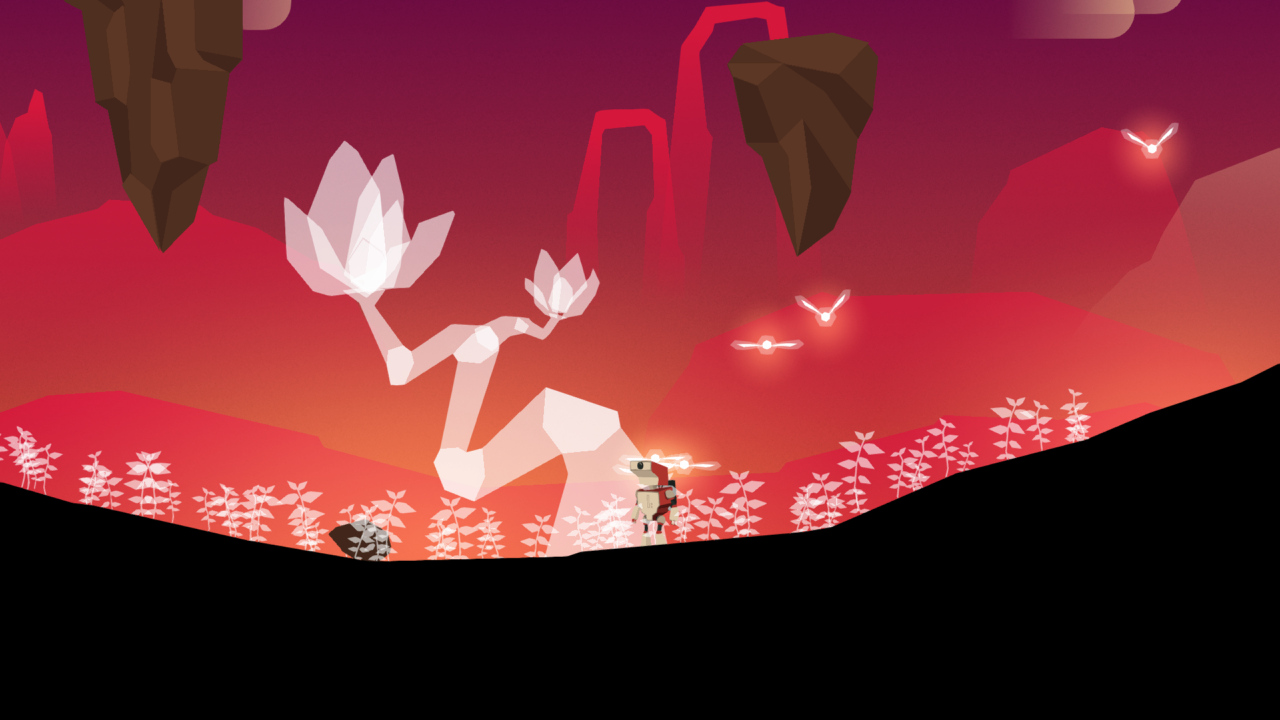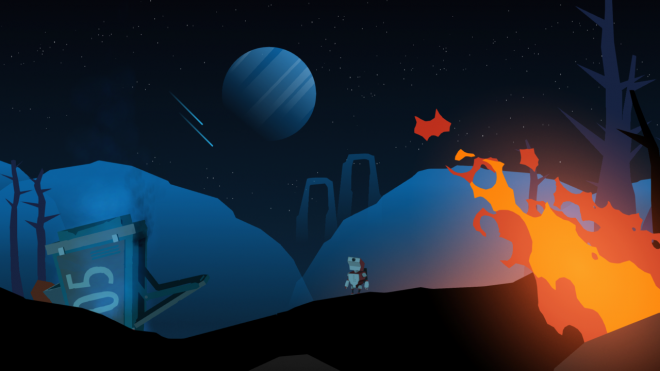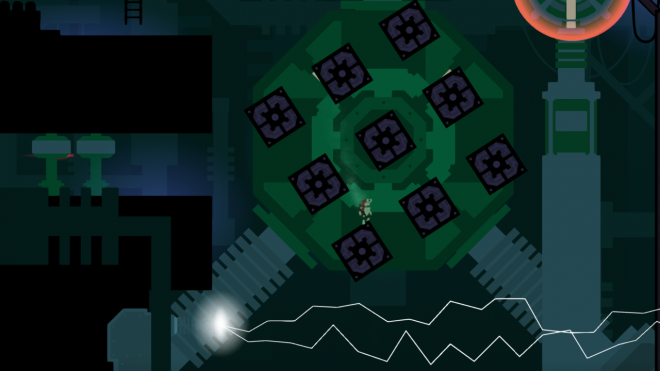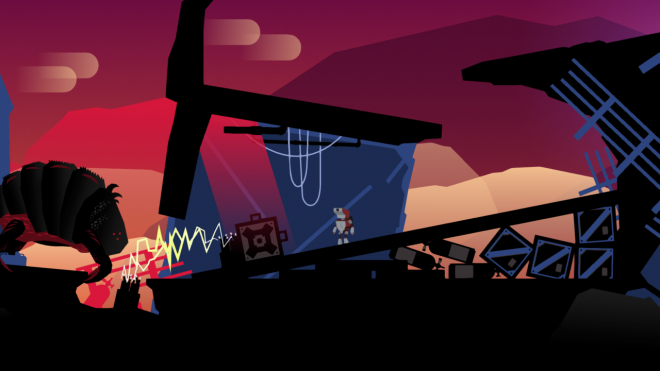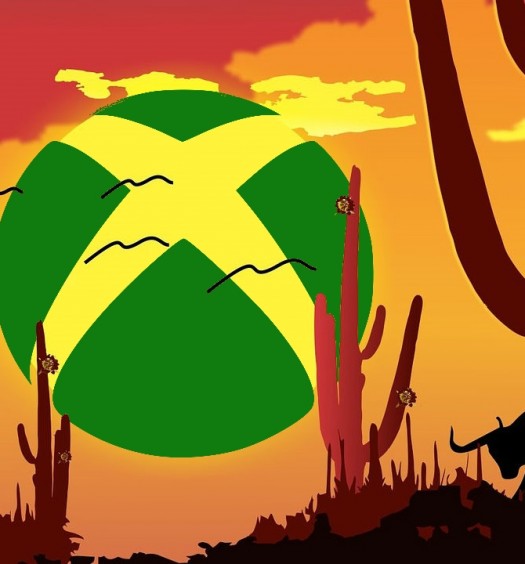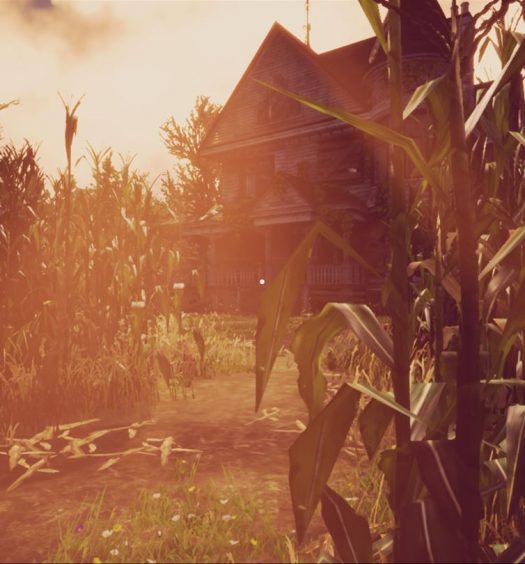Okay, I’ll admit it – I have no idea why this game is called Planet of the Eyes. I guess going into it I was expecting Planet of the Apes levels of obviousness, with giant sentient eyeballs ruling over the land. That’s far from the case, as while the creatures of the world have eyes they’re never the dominant feature. The title obviously must mean something metaphorical, but whatever the reason I haven’t been able to parse it. I also don’t understand why the player character is a robot with an inverted Polaroid camera for a head, but at least it sure is cute.
Here’s what I liked:
Cliff hanger – For a game where you control a slow robot with a modest jump, the platforming works surprisingly well. The game’s at it’s best when you’re trying to survive its physics, jumping from a series of collapsing platforms and just barely grabbing the ledge of solid ground. These moments are handled very well and can get pretty thrilling, actually using physics instead of being straight-up scripted. Even when the world isn’t crumbling around you the platforming still feels good; it’s just a simple run-and-jump control scheme with an automated ledge grab, but it works well.
Here’s what I didn’t like:
Addendum – The platforming works well up until the final section. Half of the time it’s killing you for not doing a perfectly timed jump, the other half you’re on these slow spinning squares that take forever to get where you need to go. They’re incredibly easy to slip off of, and even at their pace, it’s hard to calculate a well-timed jump from one moving cube to another. This difficulty spike comes out of nowhere and slows the game to a grinding halt.
Robot vs. Aliens – While the platforming is fun, the puzzles aren’t so much. For the most part, they’re fairly simple, but there are a few that work on some odd logic. I noticed the most annoying moments were those that involved the planet’s deadly life forms. One puzzle has you tricking a fish to be eaten by a much larger fish, but it’s way more likely the giant fish will just eat you instead. There’s a giant beetle-like monster than will miss killing you if you step right in front of it, but will pounce over a wall and destroy you with a precision strike. Puzzles obviously want you to solve them one certain way, but sometimes they don’t give you enough context to understand what you should be doing or what the end result of your actions might be.
Another world – The game’s art style is actively working against it. The game is obviously trying to be an atmospheric platformer a la Limbo or Inside, evident by the occasional long swath of mostly walking, but it fails to create an actual sense of place. The art direction is incredibly simple. And while the world is vibrantly colored, the extremely minimalistic designs makes everything look flat and lifeless. Nothing about the world feels all that captivating; the background doesn’t have anything interesting to look at, and deadly creatures appear more silly than scary. Animations look stiff or lame, with the death animations really lacking a good punch. The world is somewhat superfluous anyway, as the majority of the storytelling is done through audio logs placed along the main path. They recount the tale of the robot’s creator, whom the robot is trying to catch up, as he tries to find a way off the planet. While the writing and voice acting is competent there’s constant reference to how the playable robot is special and has actual emotions, which is never reinforced through in animation or gameplay.
Wrap-up:
Planet of the Eyes is a surprisingly short game, clocking in at around an hour and a half. The game just doesn’t have the level of polish that allows such a length to be excusable. It’s an incredibly simplistic take on gameplay and narrative ideas we’ve all seen a million times before, never doing anything new or memorable. Even at its best, it amounts to little more than a bland experience, one that will be over quickly and easily forgotten.
Score: Limited Appeal
Planet of the Eyes was developed and published on Xbox One by Cococucumber. It was released September 12, 2017, for $9.99. A copy was provided for review purposes.

